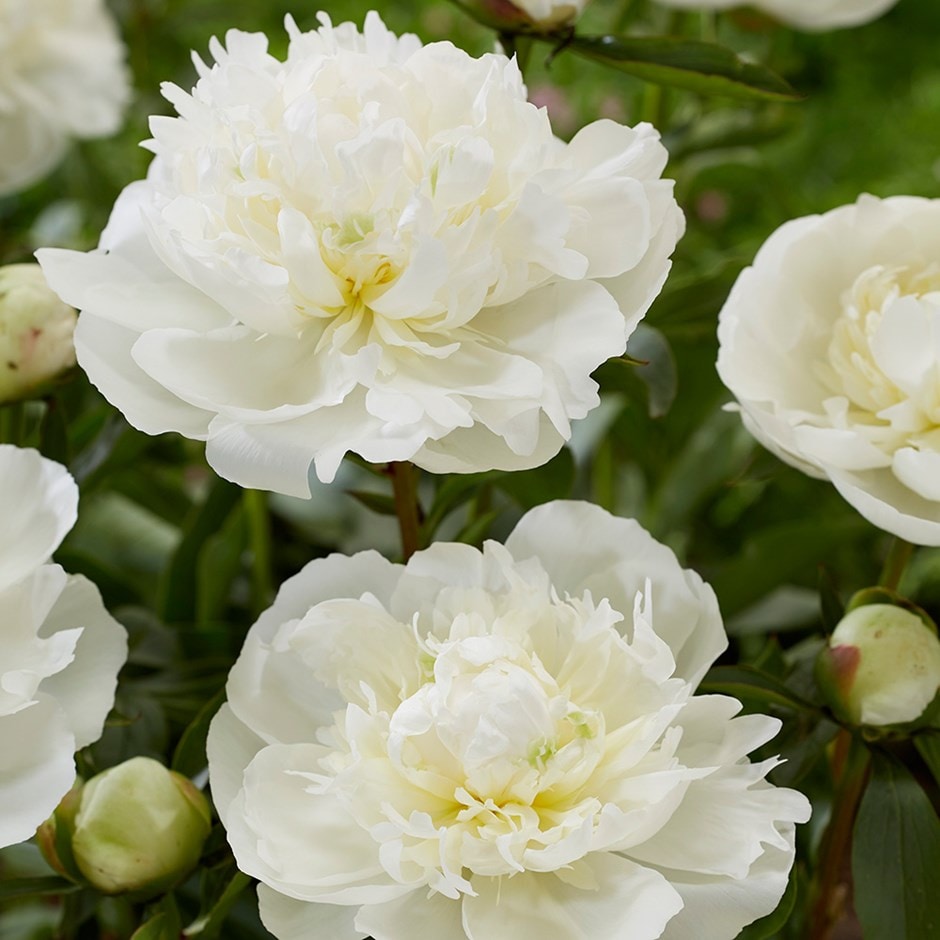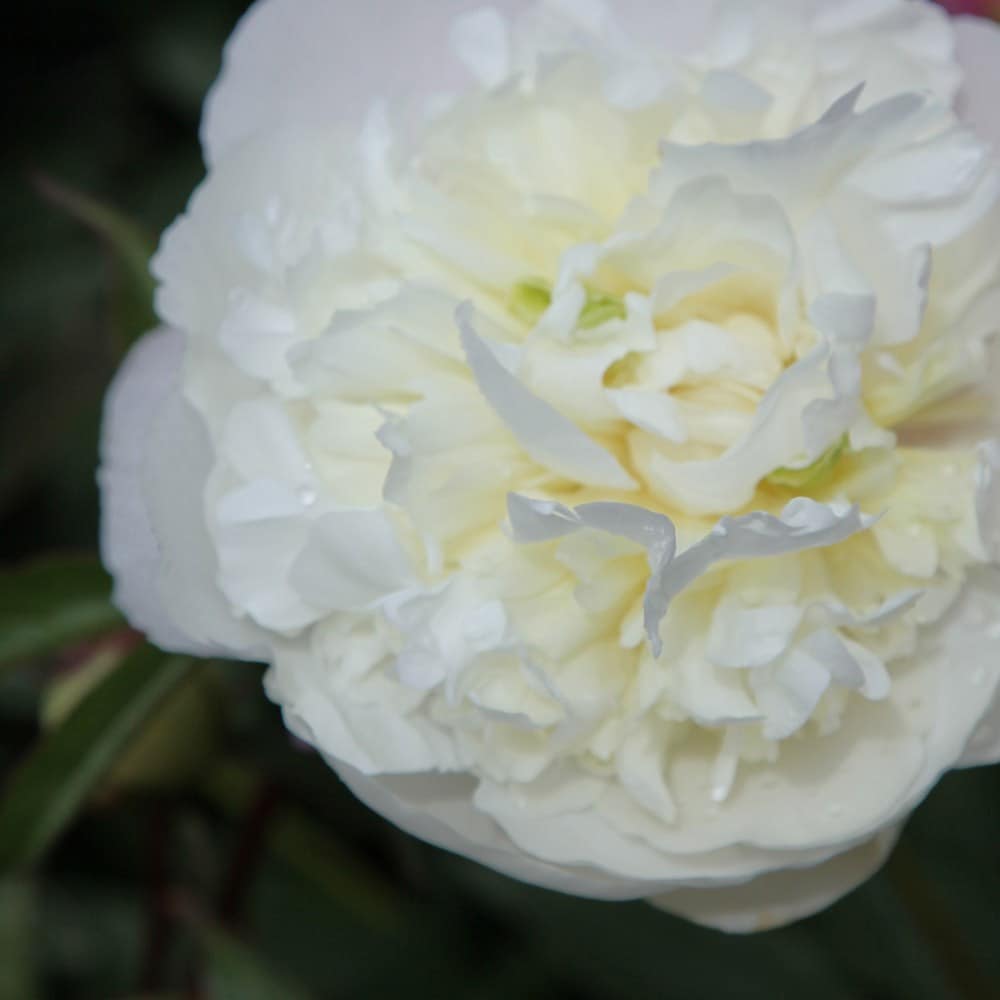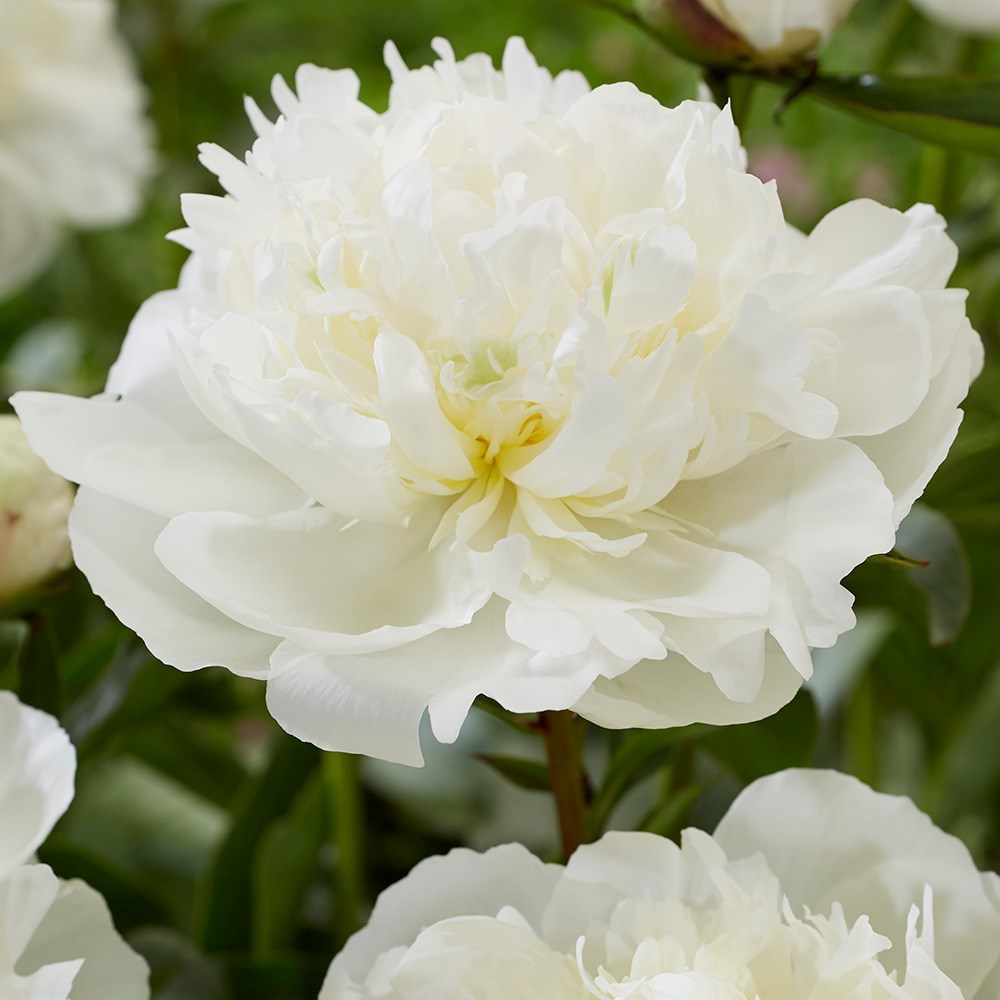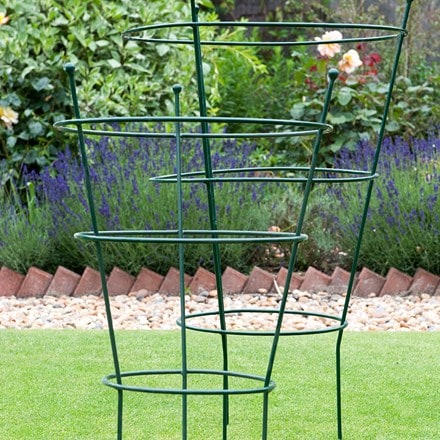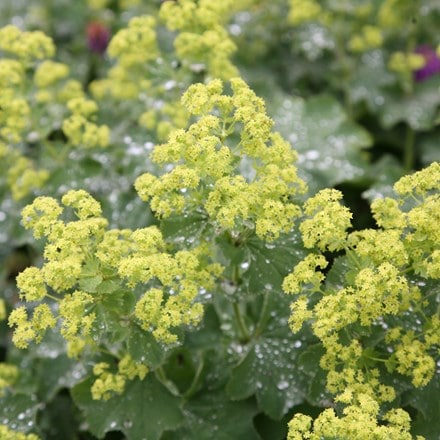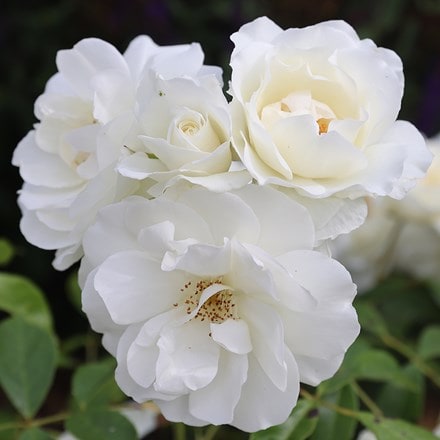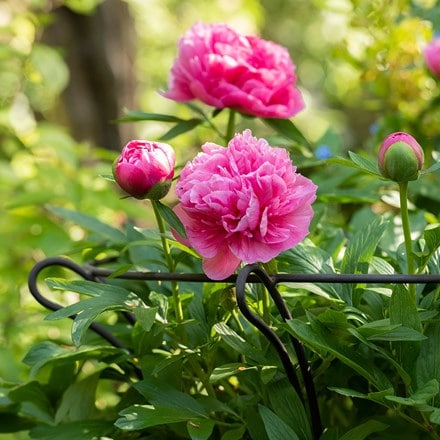Paeonia lactiflora 'Duchesse de Nemours'
paeony or peony
- 4 litre pot
- £16.79 £27.99
- available to order from late spring
- bare root plant
- £8.99
- available to order from autumn 2024
- 2 × 4 litre
- £27.00 £45.00
- available to order from late spring
Delivery options
- Standard £5.95
- Position: full sun
- Soil: moderately fertile, moist but well-drained soil
- Rate of growth: average
- Flowering period: June to July
- Hardiness: fully hardy
Prized for their big, glamorous blooms and glossy, deeply cut foliage, peonies are held in deep affection by many gardeners, despite their short flowering season and vulnerability to peony wilt in damp weather. It's easy to see why. From the promise of early spring, when their red, mottled shoots push through bare earth and the handsome foliage unfurls from spherical red buds, to early summer, when the huge flowers burst open, peonies exert a fascination that few can resist. 'Duchesse de Nemours' has huge, bowl-shaped pure white, fragrant, double flowers, flushed green in bud, from early to midsummer. This classic, double-flowered peony from the mid-nineteenth century is a favourite of the cut flower trade. It will thrive in full sun or partial shade. Fill the bare ground around the peony before the leaves appear with spring bulbs to prolong the season of interest.
All of our peonies are field grown. We supply potted plants throughout the year, and subject to availability during the dormant winter months, we also offer bare-root plants (or tubers). If buying a potted plant, please keep in mind that some of the compost may still be a little loose, falling away when the plant is removed from the pot.
All of our peonies are field grown. We supply potted plants throughout the year, and subject to availability during the dormant winter months, we also offer bare-root plants (or tubers). If buying a potted plant, please keep in mind that some of the compost may still be a little loose, falling away when the plant is removed from the pot.
Bare root plants should either be potted up or planted out as soon as possible while avoiding frosty or waterlogged conditions. Plant all peonies into well-prepared soil, making sure that the highest bud on the crown is no deeper than 5cm (2in) below the soil surface. In growth, keep well fed and watered, and remove spent flowers after they have faded. In each subsequent spring, apply a balanced slow-release fertiliser around the base of the plant and mulch with well-rotted compost or manure.
- Pets: Skin irritant
